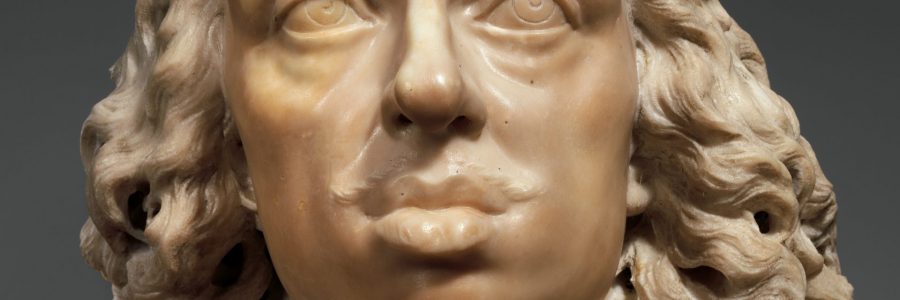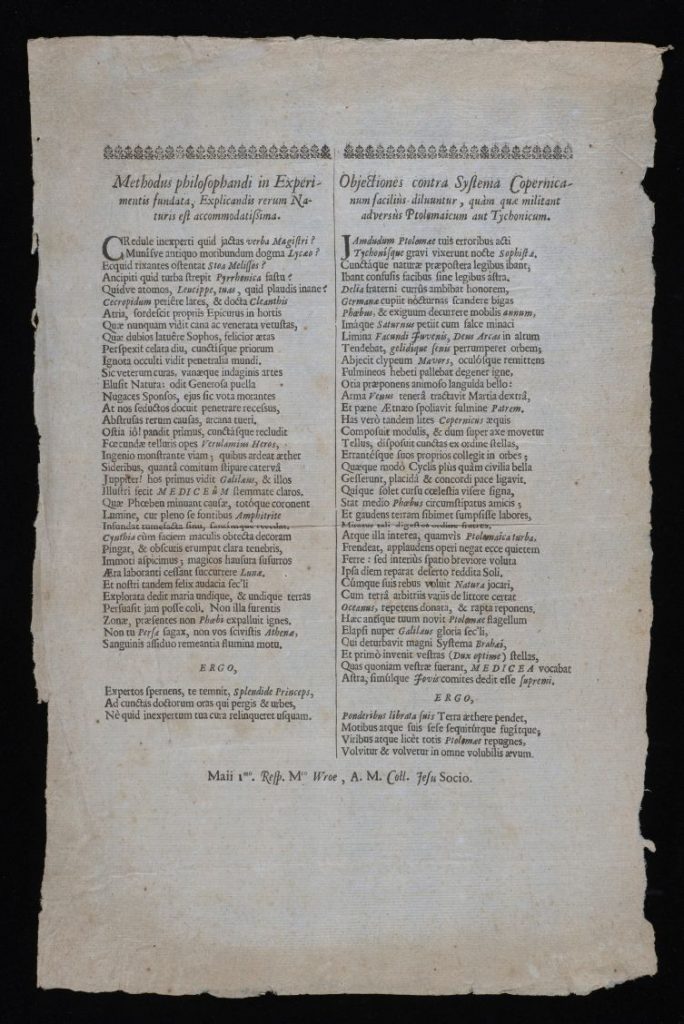
Cosimo de Medici’s visit to Cambridge

The future Grand Duke of Tuscany, Cosimo III de Medici (1642-1723), visited England in the spring of 1669, as part of a series of European tours designed chiefly to distract him from his unhappy marriage. On 1st May he arrived in Cambridge, staying at the Rose Inn, the principal inn of the town, which stood where Rose Crescent now runs. There he was welcomed by the mayor (in English) and the vice-chancellor (in Latin), and escorted by the Heads of Houses through double ranks of scholars in their gowns to the Schools. After being shown the University Library “in which is a great abundance of books of every description”, his highness proceeded to the Regent House where some of his retinue were given honorary degrees. After lunch he returned to the Regent House where he “was pleased to be present at a Philosophy-Act appointed for that purpose”, and then visited King’s College chapel, the library of St. John’s “which both in the number and curiosity of its books surpasses that of the University”, and Trinity College. The day ended with a performance of a Latin comedy by the scholars, which the prince “seemed to like … very well & as the usual manner is did clap his hands at it”.
We know all this from eye-witness accounts of the time, most notably that left by Count Lorenzo Magalotti (1637-1712), who accompanied the prince on his tour. Magalotti describes the themes of the Philosophy Act at which the prince was present somewhat ungrammatically as “De methodi philosophandi in experimentis fundata, et contra systema Copernicanum” [On the methods of philosophy founded in experiments, and against the Copernican system]. His account has led later writers to believe that the University of Cambridge resisted Copernican heliocentrism into the second half of the seventeenth century. A recent acquisition by the University Library demonstrates that this is not the case.
It is a broadside containing the texts of the two themes in Latin verse, ascribed at the foot of the sheet to Richard Wroe (1641-1718), Fellow of Jesus College and later warden of the collegiate church in Manchester (now the cathedral). That on the left is entitled “Methodus philosophandi in Experimentis fundata, Explicandis rerum Naturis est accommodatissima” [A philosophical method based on experiments is most suited to explaining the mysteries of Nature], and pays tribute to Francis Bacon and Galileo. On the right, however, is a text headed “Objectiones contra System Copernicanum facilius diluuntur, quam quae militant adversus Ptolomaicum aut Tychonicum” [Objections against the Copernican system more easily washed away than those which argue against the Ptolemaic and Tychonian systems]. This second text is in fact a defence of Copernicanism, comparing it favourably with those of the other two systems named, and referencing Galileo as both the disprover of that of Tycho and, pertinently to the princely auditor, the discoverer of the moons of Jupiter, which he named the Medicean stars after his patron, Cosimo’s grandfather Cosimo II.
Galileo is also referenced in the first oration, and this is doubtless intended as a tribute to the Medicis and their loyalty to Cosimo II’s old tutor, even after his teachings had been condemned by the Vatican. Cosimo III was, however, of a very different cast of mind from his father Fernando II and grandfather. His pious mother had vetoed a scientific education, and the future Grand Duke’s interests were largely religious. He might well have been discomfited by the association of his name with that of someone found “vehemently suspected of heresy”. Magalotti, a member alongside Fernando and other followers of Galileo of the Florentine Accademia del Cimento and author of its only publication, would perhaps have been more receptive, but it is he who is responsible for the account of the Act as being “against the Copernican system”.
Was Magalotti just trying to gloss over an awkward moment in the trip when his princely and pious companion found himself exposed to ideas condemned by the Roman Inquisition? That is certainly one explanation. Another hinges on differences in Latin pronunciation. In his account, Magalotti twice comments on the peculiar accent of the Cambridge men when pronouncing Latin. So peculiar, in fact, that the orations of his hosts were almost unintelligible to their Tuscan visitors, even though Latin was the international language of scholarship at the time. So it is quite possible that Magalotti simply misunderstood Wroe’s theme as an argument against Copernicus when in fact it was a defence of his ideas. Until the rediscovery of Wroe’s original verses in this broadside, of which no other copy is known to exist, later historians have had only Magalotti’s account to go on, with the result that Cambridge has been mischaracterised as a holdout against Copernican cosmology rather than a relatively early adopter. Rarely can Latin mispronunciation have had so far-reaching an effect.
